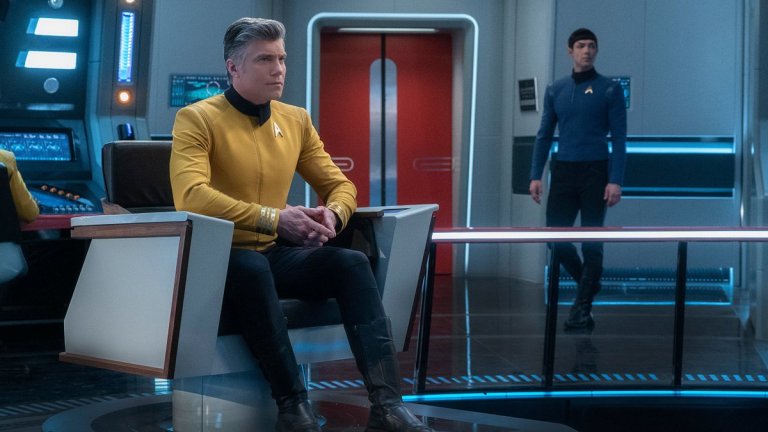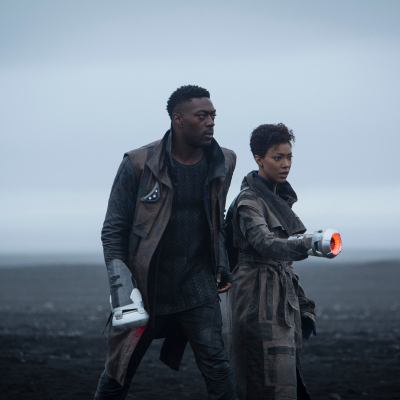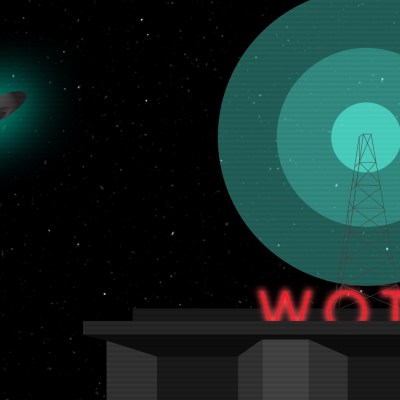Star Trek: Strange New Worlds is the Kind of Science Fiction We Need
Star Trek: Strange New Worlds is set to be not just the Captain Pike spinoff we deserve, but the hopeful, optimistic tale sci-fi fans need.

Maybe now more than ever, we all need some hope in our lives. And historically speaking, almost no genre-based series – save perhaps fellow elder sci-fi statesman Doctor Who – is better than giving us that kind of story than Star Trek is. We all want to boldly go, after all. And we all want to believe in the ideals of Gene Roddenberry’s universe, in his vision of an optimistic future where humanity has finally embraced its better angels and works together to explore the stars.
Unfortunately, however, this is 2020. A pandemic is sweeping the globe and, in the U.S., police continue to kill Black citizens, and we’ve generally stopped looking at the stars with wonder in our eyes. Our science fiction, like a lot of our entertainment nowadays, is grim and bleak, full of monsters, murder robots, political conspiracies and dangerous technology. As a species, it’s not super clear if we’re anticipating the future with anything that resembles hope anymore.
Even the Star Trek franchise isn’t immune to this trend. Both Star Trek: Discovery and Star Trek: Picard wrestle with darker themes and more nihilistic stories than any of their predecessors ever did. And both often focus on puzzlebox mysteries and complex plot twists as much as they do their characters or any sort of consistent philosophical message. (For the record, I quite like both these shows – but neither of them is precisely what you might call aspirational television, most of the time.)
The latest newly announced addition to the Star Trek family, however, seems as though it’s specifically aiming to fill that gap for us. Entitled Star Trek: Strange New Worlds, it will reunite the U.S.S. Enterprise crew of Captain Christopher Pike (Anson Mount), Spock (Ethan Peck) and Number One (Rebecca Romijn) who were introduced in Season 2 of Discovery for their own set of adventures. And the show honestly could not come at a better time, or with a better captain at its helm.
(Sure, we likely won’t see this show on our screens for some time – thanks a lot for that, coronavirus – but as we collectively dig our way out of, well, everything, the very fact of its existence provides some tangible and necessary hope.)
In the increasingly dark world of Discovery, Pike’s arrival in Season 2 feels like a breath of fresh air – a handsome, charming and utterly dedicated believer in the larger Starfleet mission. As a character, he feels like he stepped straight off a recruitment poster. From his first moments onscreen, he’s everything a Starfleet captain should both be and do, an encouragement to everyone around him to be their best selves. The promise of Strange New Worlds carries a similar feeling, to be honest – a reminder of why we fell in love with this franchise in the first place, and why we continue to look to it to show us the best possibilities of our own future.
On Discovery, Captain Pike is a perfect blend of classic nostalgia with modern sensibilities. Mount plays him with a golden retriever’s charm, the sort of relentlessly good and likeable figure that, in the era of Peak TV, we are all basically trained to hate instantly. He’s not an anti-hero. He’s not particularly conflicted or questioning his inner understanding of right and wrong. He doesn’t have a dark past. (Though, technically, he has a dark future that hasn’t arrived yet.) In fact, he’s kind of a goober. Surely, there’s something secretly wrong with him. Or with us, for caring about him.
Or maybe there’s still something to be said for the simple story of a good man, after all.
It is Pike’s most aggressively normal qualities, after all, that make him so compelling to watch and root for. He’s kind to those who serve with him. He listens to others, and values their opinions. He constantly works for the betterment of himself, his crew, and the galaxy he’s running around in. As a leader, Pike legitimately lives his values, on both good days and bad.
“You’re a Starfleet Captain,” he tells himself at a critical point during Discovery’s second season. “You believe in service, sacrifice, compassion, and love.”
Read more
That Pike says those words in the face of his darkest moment – the choice to retrieve a time crystal that will save all sentient life but doom him to an irrevocable future of radiation disfigurement and physical agony – is merely the most dramatic example of the way he embodies their spirit.
Goodness, after all, isn’t a character trait. It’s a thing that you do. It’s a choice you have to make, over and over again.
And on almost any other show that’s on-air right now, it’s likely that Pike probably doesn’t make the same decision he did here. Or, if he does, his story immediately becomes about figuring out how to break, erase or otherwise undo the deal he made on Boreth. But not here. Part of that is because we already know how Pike’s story must end, and that no matter what happens on either Discovery or Strange New Worlds, the Star Trek: The Original Series episode “The Menagerie” is waiting in his future. But it’s also because that’s just who Pike is.
Despite the dark fate hanging over him, Pike’s journey is ultimately one of hope and self- determination. A reminder that if nothing we do matters – then all that matters is what we do. His story isn’t going to be about trying to delay or avert the fate he chose. Rather, it’s going to be about deciding what to do with the time that’s been given to him.
And I’m not sure there’s a better message to send to humanity right now.
Every news piece about the launch of Strange New Worlds has included the same related set of buzz words – things like “classic,” “Star Trek values” and “optimism” – to describe the show they’re trying to make. If that feels like a throwback to the heyday of The Original Series, with its bright colors, sunny outlook and general conviction that all things eventually work out to the good in the end, that’s clearly intentional.
Strange New Worlds represents a return to the first principles of Star Trek, a reminder that even as the franchise explores darker, more mature themes in shows like Picard, Discovery and that Section 31 spinoff that’s still rumored to be happening, there’s still a necessary and important place place for stories about hope and goodness. (Something which is in all too short supply in the world of science fiction and genre entertainment at the moment.) Darkness is only valuable after all, if we remember the light that came before it. Here’s to seeing that light onscreen again alongside all the dark.




